Description
Halal Frozen Turkey Paws: A Comprehensive Guide
Introduction
Halal frozen turkey paws are an increasingly popular product in global poultry markets. They offer niche appeal to consumers who value Halal sourcing, specialty textures, and economical poultry parts. Whether for culinary uses, pet food, or ingredient supply chains, understanding what makes turkey paws Halal, frozen, and viable is essential for producers, importers, and end-users.
In this guide, we’ll cover:
-
What exactly are turkey paws and why they’re used
-
What “Halal frozen turkey paws” means: certification, handling, and compliance
-
Quality, safety, and standards involved in production and trade
-
Nutritional value and potential health / culinary uses
-
Market trends, supply chain, and major producers
-
Considerations for buyers (storage, transport, certification, regulations)
-
Recipes and uses
-
FAQs
What Are Turkey Halal Frozen Turkey Paws
“Turkey paws” refer to the lower extremities of turkeys (essentially the foot, minus or including parts like the toes/pads, depending on how processed). They may include skin, tendons, cartilage, and are often considered a by-product in many poultry processes. Because of their rich collagen content and unique texture, they find uses in:
-
Culinary traditions (soups, stocks, stews)
-
Pet foods and treats
-
Gelatins / food ingredients in some cultures
-
Export markets where turkey paws are in demand
These parts are generally less valued than breast or drumstick meat, so they are more affordable, but require particular processing and handling to ensure cleanliness, quality, desirability.
What Does “Halal Frozen Turkey Paws” Mean?
Several aspects make a product “Halal Frozen Turkey Paws”:
-
Halal Slaughter and Handling
The turkey must be slaughtered according to Islamic dietary laws:-
The animal must be healthy at the time of slaughter.
-
A sharp tool should be used to sever the throat, esophagus, and major blood vessels, draining as much blood as possible.
-
Invocation (e.g. “Bismillah,” etc.) and that slaughterer must be Muslim, among other requirements depending on the certifying body.
-
Cleanliness and avoidance of contamination with non-Halal substances.
For example, suppliers like Avenorte Avícola Cianorte Ltda state that their frozen turkeys, including paws, are “hand slaughtered to Islamic (HALAL) and international requirements.” Avenorte Aviolacia Norte Ltda
-
-
Freezing (Frozen Product)
-
Once slaughtered, the product is processed (cleaned, cut) under sanitary conditions.
-
It is frozen to preserve quality, prevent bacterial growth. Suppliers set standards for storage temperature (e.g. at least −18°C) and may use blast freezing processes to quickly bring the temperature down. Avenorte says something about “blasted at: −40°C.” Avenorte Aviolacia Norte Ltda
-
Moisture content, storage, packaging all play key roles. For example, “moisture content less than 1%,” “no water retention,” etc. Avenorte Aviolacia Norte Ltda
-
-
Quality / Sanitary Standards
-
Free from feathers, bruises, bad smell, yellow skin etc. Avenorte Aviolacia Norte Ltda
-
Testing via certified labs (e.g. SGS) is often required for exports. Avenorte Aviolacia Norte Ltda
-
Packaging and handling to avoid cross-contamination.
-
-
Compliance with Export / Import Regulations
-
For international trade, must satisfy both origin country standards and destination requirements (e.g. microbiological safety, Halal certification, customs, labeling).
-
Certifications from recognized Halal authorities and possibly ISO / HACCP / FSSC standards.
-
Quality and Safety Standards Halal Frozen Turkey Paws
Because turkey paws are a less premium part of the bird, buyers and regulators often worry about hygiene, microbial load, parasites, foreign matter etc. Key safety / quality points include:
-
Temperature control: During slaughter, chilling, freezing, transport, storage. Frozen turkey paws are often stored at −18°C or colder; some processes use blast freezing at −40°C for rapid chilling. Avenorte Aviolacia Norte Ltda
-
Physical cleanliness: Removing feathers, disinfecting, removing bruises, avoiding yellow skin, avoiding ammonia burns, ensuring no blood etc. Avenorte Aviolacia Norte Ltda
-
Broken bones / damaged parts: Keeping broken bones under a small percentage (some suppliers accept <3%) to avoid quality issues. Avenorte Aviolacia Norte Ltda
-
Packaging: Using poly bags inside cartons, block freezing, ensuring no water retention, good drainage etc., so that the product condition remains good. Avenorte Aviolacia Norte Ltda+1
-
Certifications & testing: Halal certificate, SGS (or similar), meeting local / international safety regulations.
Nutritional Value and Culinary/Human Uses
Turkey paws are not lean meat like breast or thighs, but they do have interesting nutritional and culinary properties:
-
Rich in collagen, gelatin, and connective tissue elements (skin, tendons) which, when cooked slowly, break down and contribute to mouthfeel, texture, and richness in broths and soups.
-
Some minerals present; less protein than meat cuts per weight due to cartilage etc., but still a protein source.
-
Useful for making stocks / bone broths (gelatinous, flavorful), which are prized in many cuisines for richness, body, and also in health food trends for joint, skin, gut connective tissue health.
-
Because of their toughness (connective tissue, bones), they typically need longer cooking (slow simmering / pressure cooking) to become useful / palatable.
Beyond human culinary uses, turkey paws are used in pet feeding (especially dogs), snacks, treats etc., especially in markets where animal by-products have value. The Halal status may also matter for pet foods in Muslim households.
Market Trends and Producers on Halal Frozen Turkey Paws
There is legitimate trade in Halal frozen turkey paws. From web data:
-
Suppliers in Brazil (for example Aurora Alimentos, Copacol, Jaguafrangos Alimentos) list “Halal Frozen Turkey Paws” among their poultry product lines. Jaguafrangos Alimentos Ltda+2Cooperativa Central Aurora Alimentos+2
-
Suppliers such as Avenorte Avícola advertise frozen turkey paws for export (FOB / CIF) with Halal certification. Avenorte Aviolacia Norte Ltda
-
The product is shipped globally — to Asia, Europe, Africa etc. Avenorte Aviolacia Norte Ltda+1
Some observations of the supply side:
-
Because turkey is less expensive than beef or lamb in many markets, turkey parts are used to offer cheaper protein alternatives.
-
The trend towards clean, Halal, sustainably produced meats is prompting more detailed certifications, better freezing, hygiene.
-
Rising demand for specialty cuts and by-products (feet, paws, tails) both in culinary contexts (soups, stews) and animal nutrition markets.
Considerations for Buyers for Halal Frozen Turkey Paws
If you are considering purchasing Halal frozen turkey paws (as a distributor, importer, retailer or even chef), consider the following:
-
Halal Certification & Authenticity
-
Check the certifying body (is it recognized locally / internationally?)
-
Make sure all steps (slaughter, processing, freezing, transport) are Halal compliant — sometimes packaging, handling, or shared facilities can introduce issues.
-
-
Documentation and Testing
-
Lab test reports for pathogens (Salmonella, E. coli etc.)
-
Certificates of origin, weight, composition (e.g. moisture, broken bones, cartilage content)
-
Halal audit reports
-
-
Storage and Transport Conditions
-
Frozen chain integrity: from slaughterhouse → freezer → shipping → retailer/kitchen. Any break in freezing could degrade quality.
-
Packaging that prevents freezer burn, moisture loss, odors.
-
-
Product Quality Inspection
-
On arrival, inspect smell, appearance. No bad smell, no yellow skin, no black pads etc.
-
Check for excess ice glaze, which might indicate re-freezing or long storage.
-
Proportion of unusable parts, broken bones etc.
-
-
Cost vs. Value
-
Price will depend heavily on origin country, Halal certification, freezing process, shipping.
-
Consider whether cheapest product is truly cost-effective, or if quality issues will reduce usable yield.
-
-
Regulatory / Import Rules
-
Importing frozen poultry parts often has strict regulations in many countries — phytosanitary, health standards, Halal labeling.
-
Tariffs, quotas or bans may apply.
-
Recipes & Uses
Here are some ways to use Halal frozen turkey paws:
Stocks, Broths, and Soups
-
Turkey paws can be simmered for many hours (4-6+ hours) with aromatics like onion, garlic, bay leaves, peppercorns etc., to produce a rich collagenous stock.
-
Use for soups, gravies, sauces to provide body.
Stews and Traditional Dishes
-
Some cuisines use turkey feet/paws similarly to chicken feet: in heavily spiced stews, with beans or legumes.
-
They can add texture and flavor when slow cooked with tomatoes, peppers, and spices.
Pet Food / Treats
-
When properly handled (cooked, bones softened or removed if needed; or ground), they can be used in pet food formulations.
-
Some freeze-dry or dehydrate for chews (if Halal and safe).
Specialty and Gourmet Preparations
-
Deep frying or crisping after slow cooking can yield a novelty product, much like crispy chicken skin, but from turkey paws.
-
Incorporation into dim sum, street food style dishes in parts of Asia or Africa where paws are valued.
Nutritional & Health Considerations
While turkey paws are not the leanest part of the turkey, they have interesting nutritional contributions plus some cautions:
Benefits:
-
Collagen and connective tissue may support joint health, skin elasticity and healing.
-
Broth made with turkey paws can provide gelatin, minerals and trace elements.
-
Lower in cost, so more accessible protein/texture source.
Potential Drawbacks:
-
High in connective tissue and cartilage → less meat → less lean protein per weight. So not a substitute if one needs high muscle protein intake.
-
Bones can be a hazard if not handled properly (sharp edges, choking, splinters).
-
Fat content / skin can render some parts greasy; also may hold more waste or bacteria if hygiene is poor.
Global Import / Export Considerations & Market Demand
-
Major Suppliers: Brazil in particular is active in exporting Halal poultry parts, including turkey paws. Avenorte Aviolacia Norte Ltda+2Aurora Brazil+2
-
Destinations: Asia, Africa, Middle East are frequent markets for Halal frozen turkey paws. Avenorte Aviolacia Norte Ltda
-
Trade Terms: FOB (Free on Board), CIF (Cost, Insurance, Freight) are common. Buyers often request sample certificates, lab analysis. Avenorte Aviolacia Norte Ltda+1
-
Packaging & Logistics: Large container volumes (for example, 40 ft containers with 27 metric tons, etc.). Packaging in cartons, poly bags, block freezing. Avenorte Aviolacia Norte Ltda+1
Sample Buyer Scenario: Brazil → Africa
To put things in context, here is a sample scenario:
A supplier in Brazil (e.g. Aurora, Copacol) offers Halal frozen turkey paws. They freeze and pack the paws, ensuring: no feathers, clean, no yellow skin, storage at −18°C, blast freezing. The shipment is prepared for export FOB Brazilian port. The importer in an African country checks for:
-
Halal certificate from a recognized authority
-
Lab report for microbial safety
-
Condition on arrival (taste, odour, ice crystals, freezer burn)
They then distribute to wholesale / retail or process into broths / pet food etc.
SEO & Keywords Possible Interest
To help with search optimization, some relevant keywords and topic phrases include:
-
Halal frozen turkey paws
-
Halal turkey paws exporters
-
Turkey paws nutritional value
-
How to cook turkey paws
-
Halal poultry by-products
-
Turkey paws for stock/broth
-
Safe handling of frozen turkey paws
-
Buying turkey paws wholesale Halal
Frequently Asked Questions (FAQs)
Q: Are turkey paws always Halal?
A: No. To be Halal, the turkey must be slaughtered according to Islamic law and the product handled in a Halal-compliant way (no contamination, certified facility etc.). Always verify the certification.
Q: Do frozen turkey paws have long shelf life?
A: Yes, when properly frozen at −18°C or colder, packaged well, and the cold chain is unbroken. But quality diminishes with repeated thawing / freezing and improper packaging (freezer burn, ice crystals).
Q: Can turkey paws be eaten directly / need special cooking?
A: They generally need long, slow cooking to break down tough connective tissue. Pressure cookers, long simmering, and use in broths are effective. Also careful removal or softening of bones if needed.
Q: Are turkey paws safe for pets?
A: They can be, if processed properly. Bones are a key concern; sharp or splintered bones can cause harm. If bones are softened (by cooking) or removed, or if the product is designed for pet consumption, then safer. Also Halal status may matter for communities that prefer it.
Q: How do I know if I’m getting good quality?
A: Smell (no bad smell), appearance (no yellow skin, no broken bones excessive, no feathers), packaging is intact, product is clean and frozen solid. Also verify the lab / safety reports.
Conclusion
Halal frozen turkey paws are a niche but growing product segment in global poultry trade. For consumers and businesses interested in them, the appeal lies in their affordability, texture, collagen content, and usage in broths or specialty dishes, as well as their Halal compliance.
For suppliers, maintaining high standards of slaughter, processing, freezing, packaging, and certification is essential. For buyers, due diligence on certification, safety, and cold chain integrity is key.

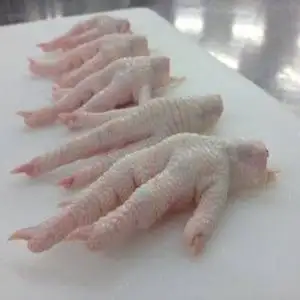
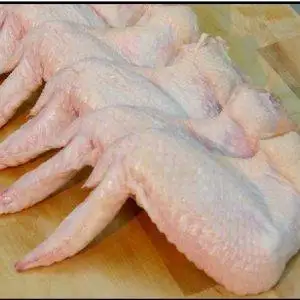
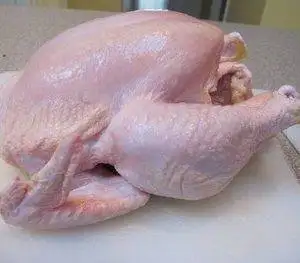
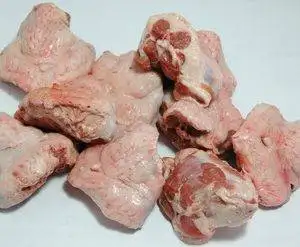
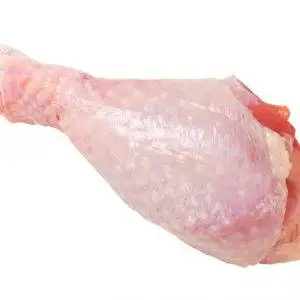
Reviews
There are no reviews yet.